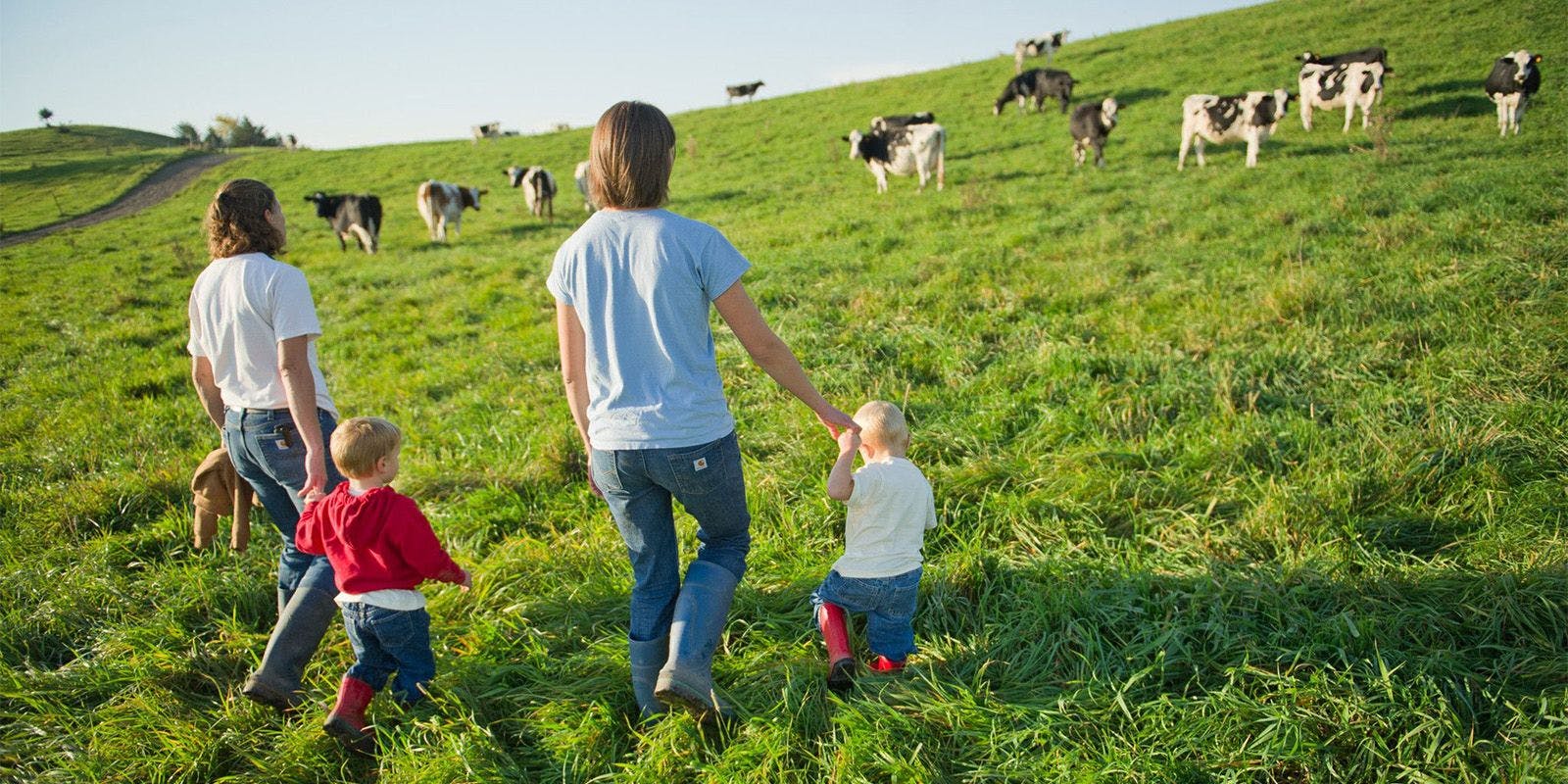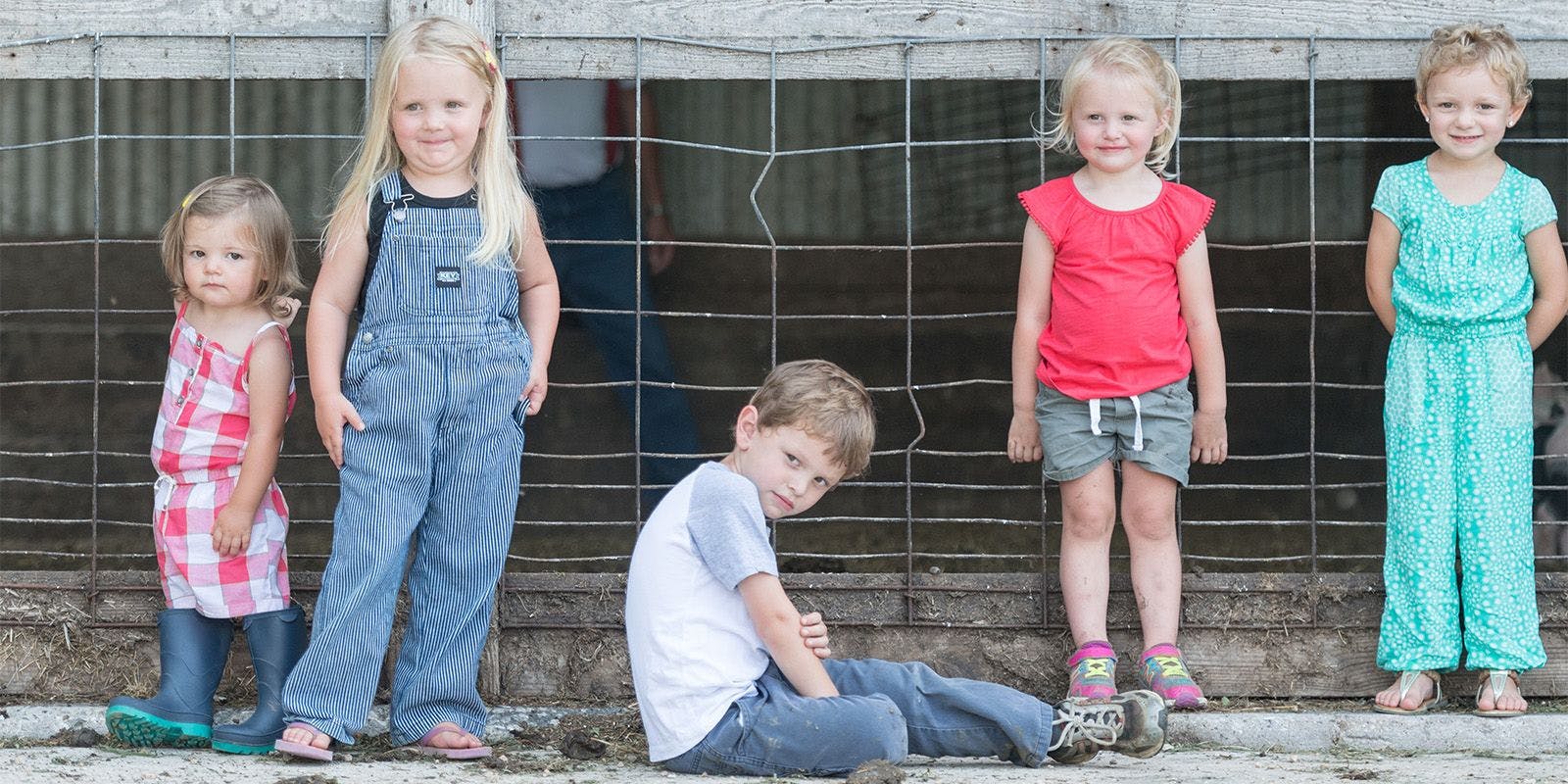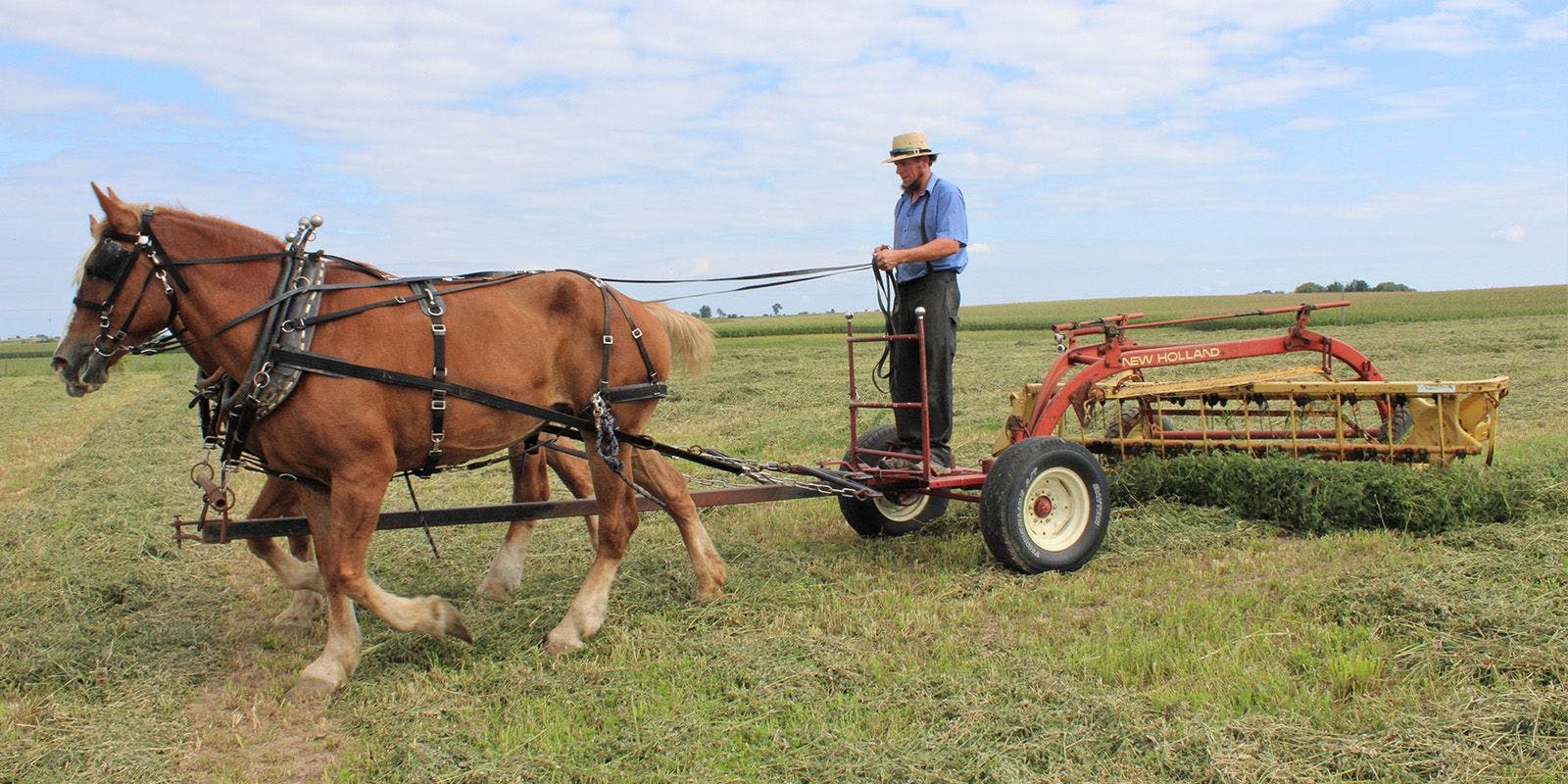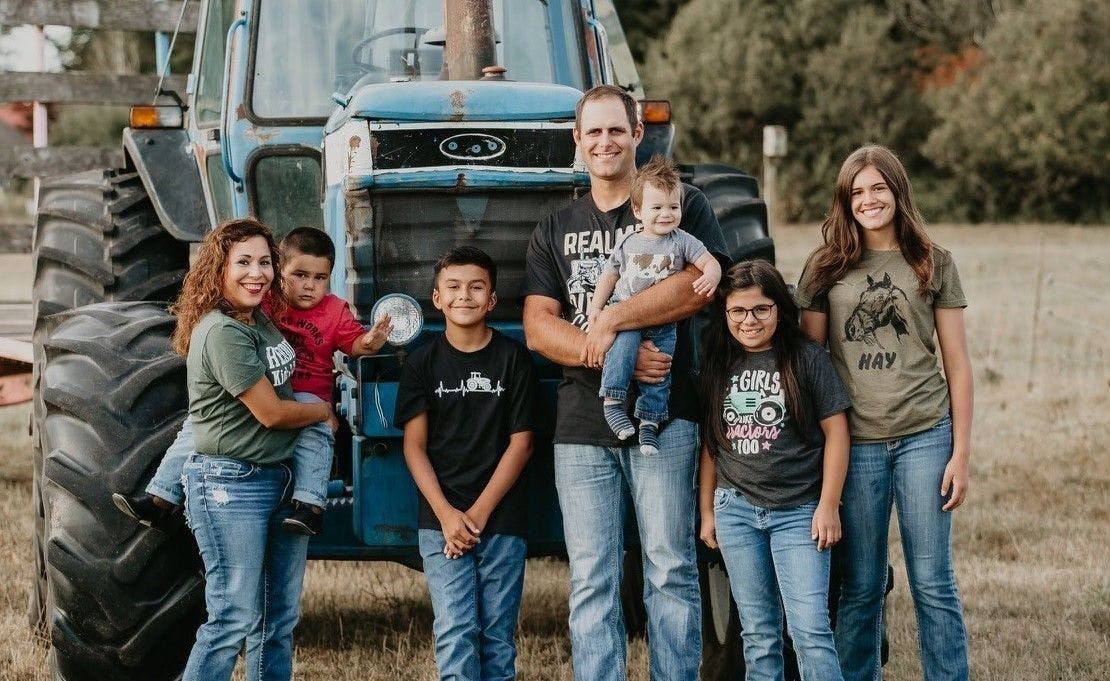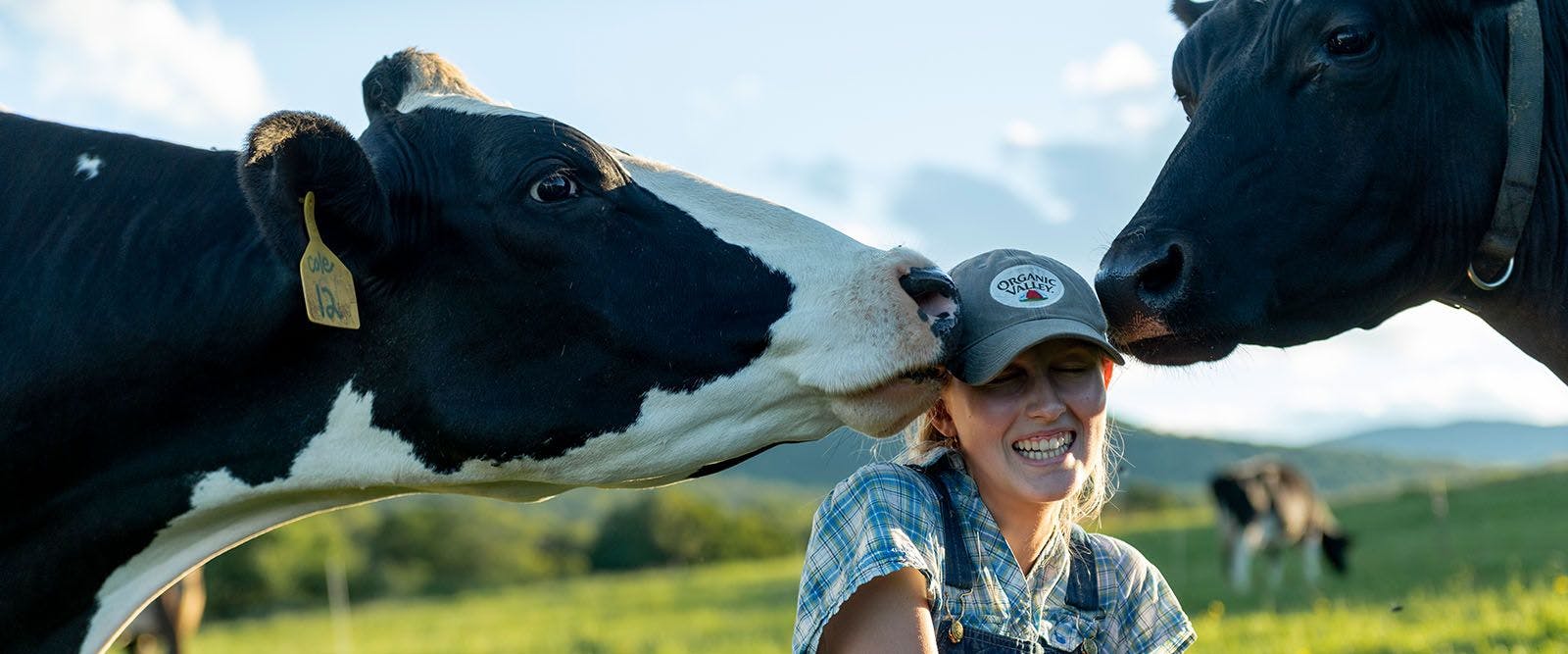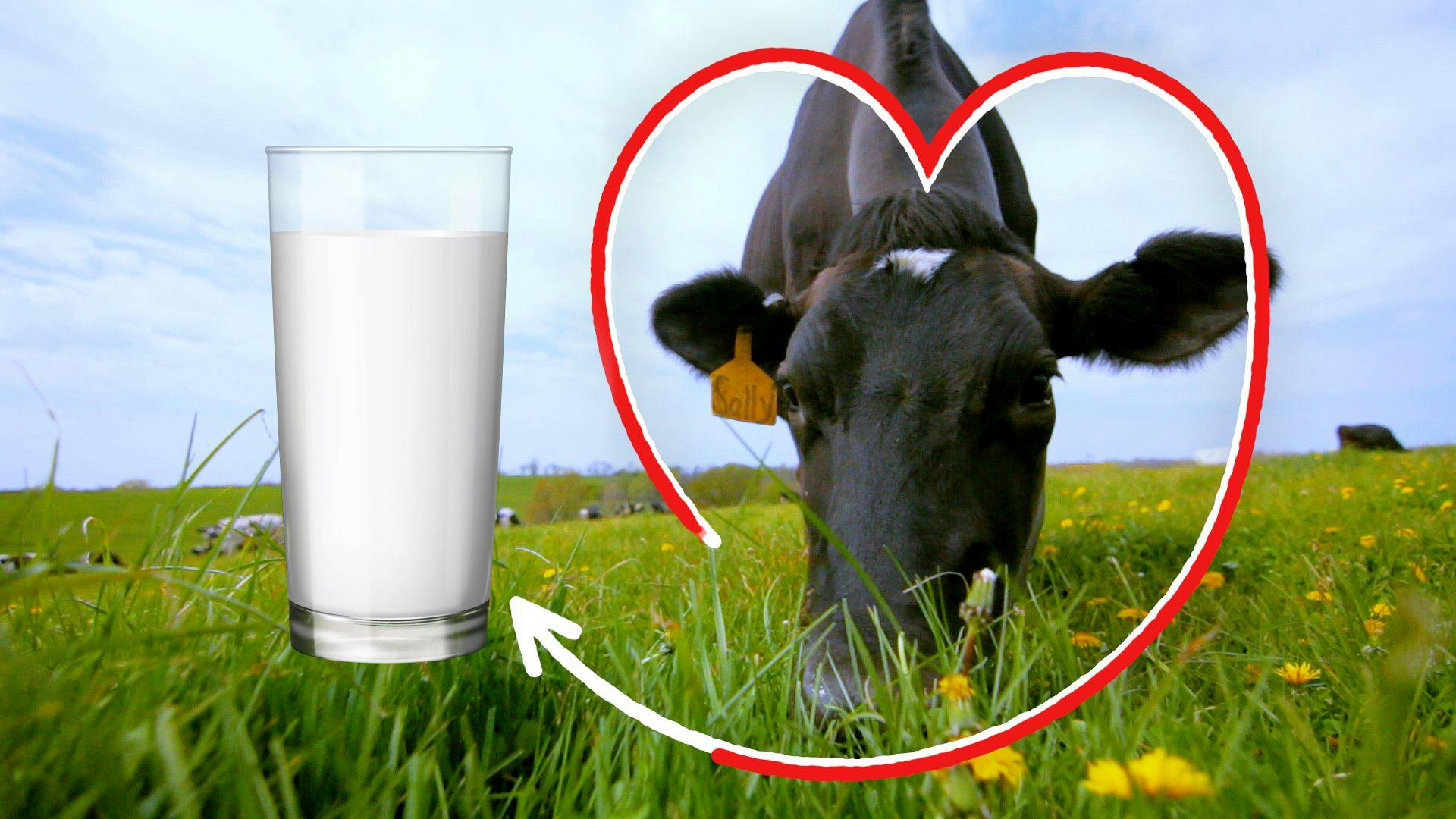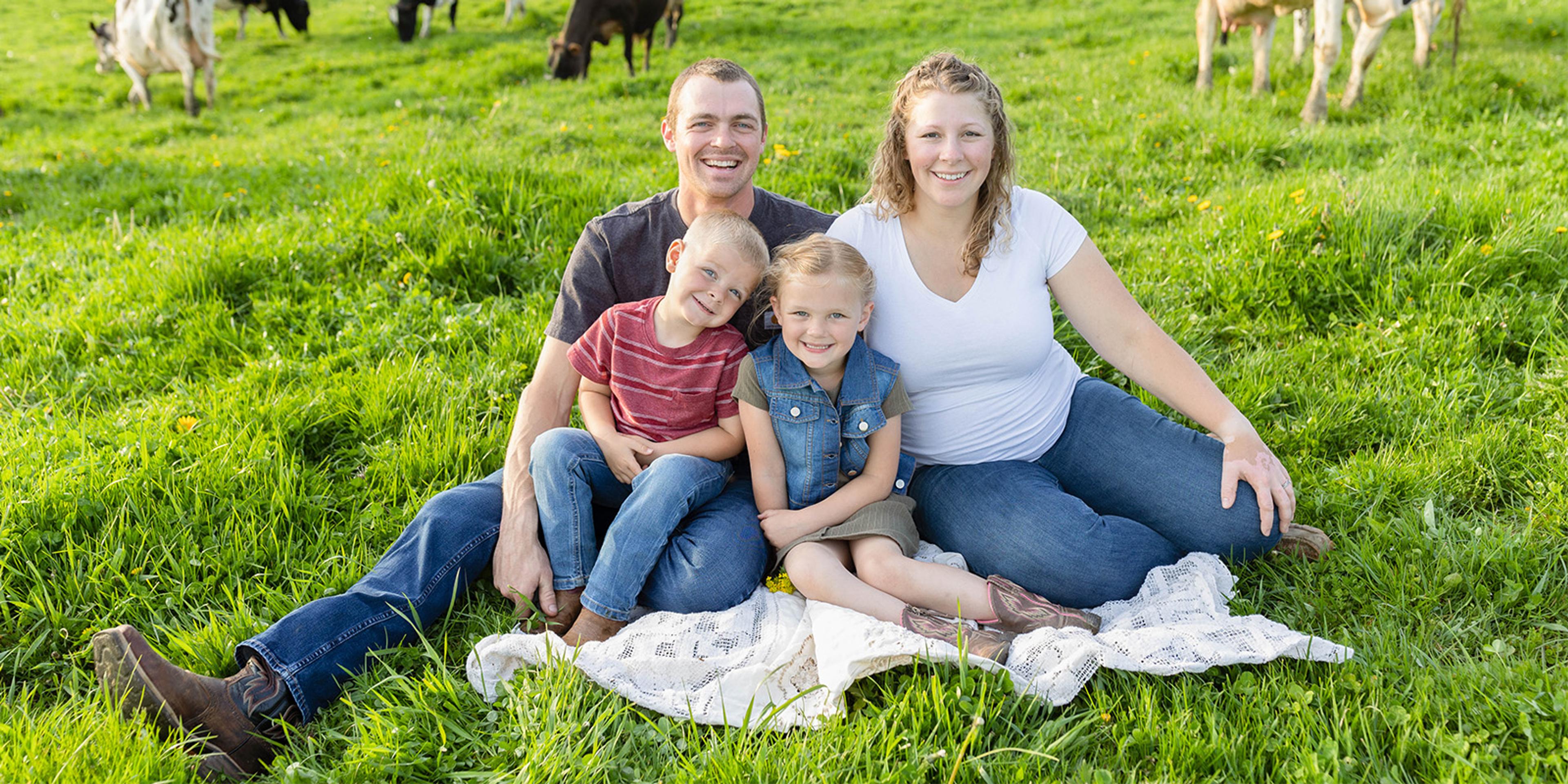
Farming
Small Family Farm in New York Looks for Ways to Pay for Big Investment
Organic Valley farmer Madeline Poole is passionate about farming. It’s tough, it’s expensive and it’s so worth it.
“Right now, I’m looking at cows, it’s sunny and they are chewing their cud,” she said on a recent morning from her organic farm in New York. “Farming is a good way of life, it’s wholesome and what you get out of the cows is wholesome.”
But a good way of life isn’t always easy, and a financial boost goes a long way in tough times. The Poole family recently got much-needed assistance. A grant will help with a $100,000 purchase that is just one of many pieces of equipment needed to run a farm. Were there options if they didn’t secure the funds? The Organic Valley farmers knew something had to be done.
The upgrade means energy savings, higher-quality milk and peace of mind for the family. Let’s not forget about the cows!
The family will also put more money toward animal comfort with the money savings from energy efficiency. The cows will get new cow mattresses! (Yes, some cows on Organic Valley farms have mattresses or other bedding that you may not envision when you think of a traditional barn.)
“We don’t even own a house, but if it ever comes down to it, we are going to build a better cow barn instead of a house,” Madeline said. “Cows are totally first for us.”
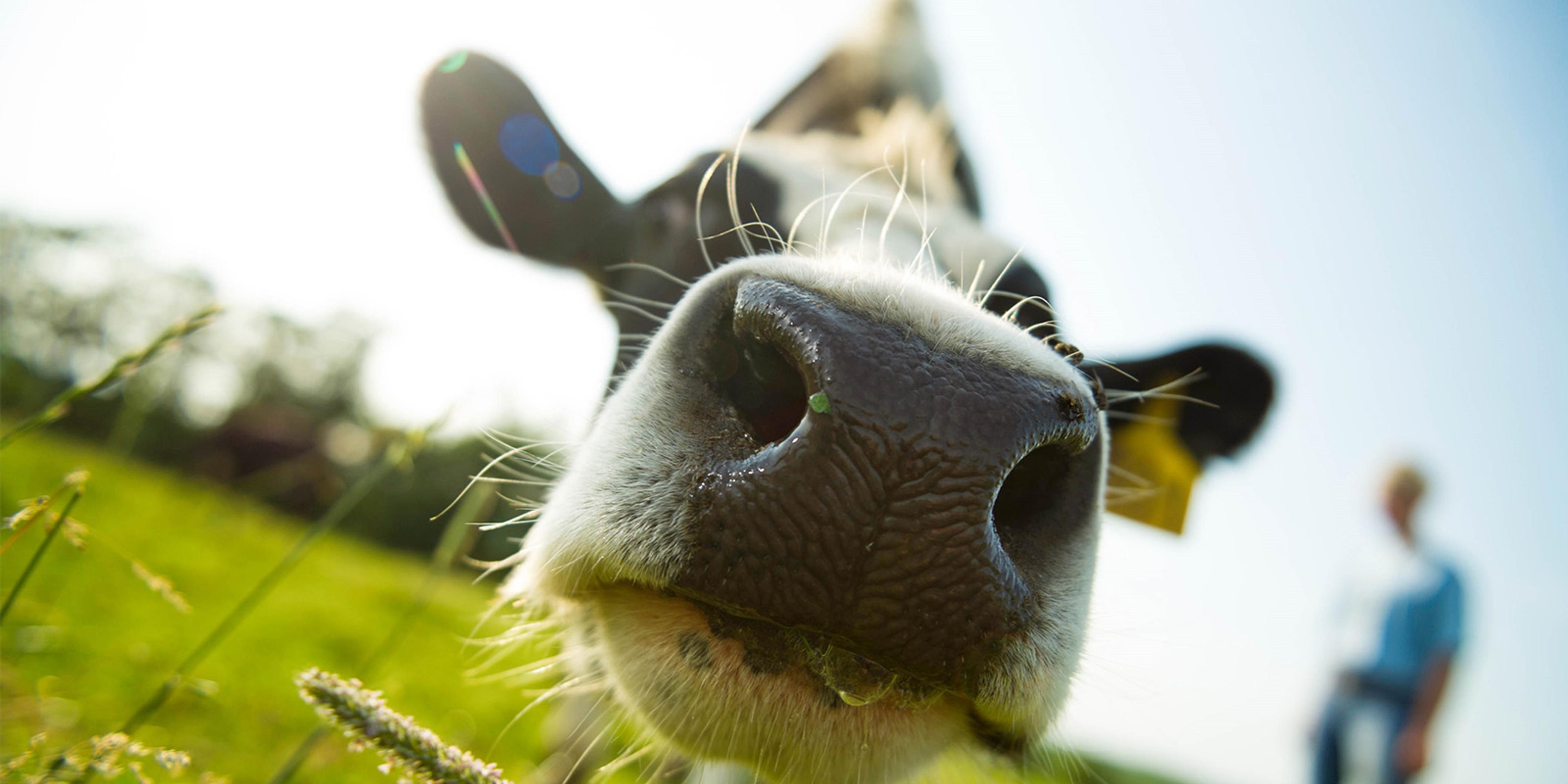
The Poole family farm, New York
Taking Over the Family Farm
A mom of 3- and 5-year-old children with another due in a few months, Madeline grew up on the family farm that her grandparents ran in the 1940s. After her grandparents, her father farmed while her mother taught school. Madeline “had to get out and explore,” so she went to college for dairy science and business and came back home to the family farm in 2016.
Her sister Lydia took care of the farm while Madeline was away, because they wanted to make sure it was there when she returned from college.
Madeline met a diesel technician, Bruce, who wasn’t brought up farming. They wed and later purchased the organic farm from Madeline’s parents. Now Bruce is all about farming — not milking cows, but other important tasks. (It’s OK, Madeline enjoys milking cows.)
The parents homeschool their children, George and Sophia, and revel in the precious time together and learnings that come from the farm and land. The children appreciate nature and rural living, and Mom and Dad enjoy the company of the youngsters as they cut hay, plow or milk cows — whatever the day has in store.
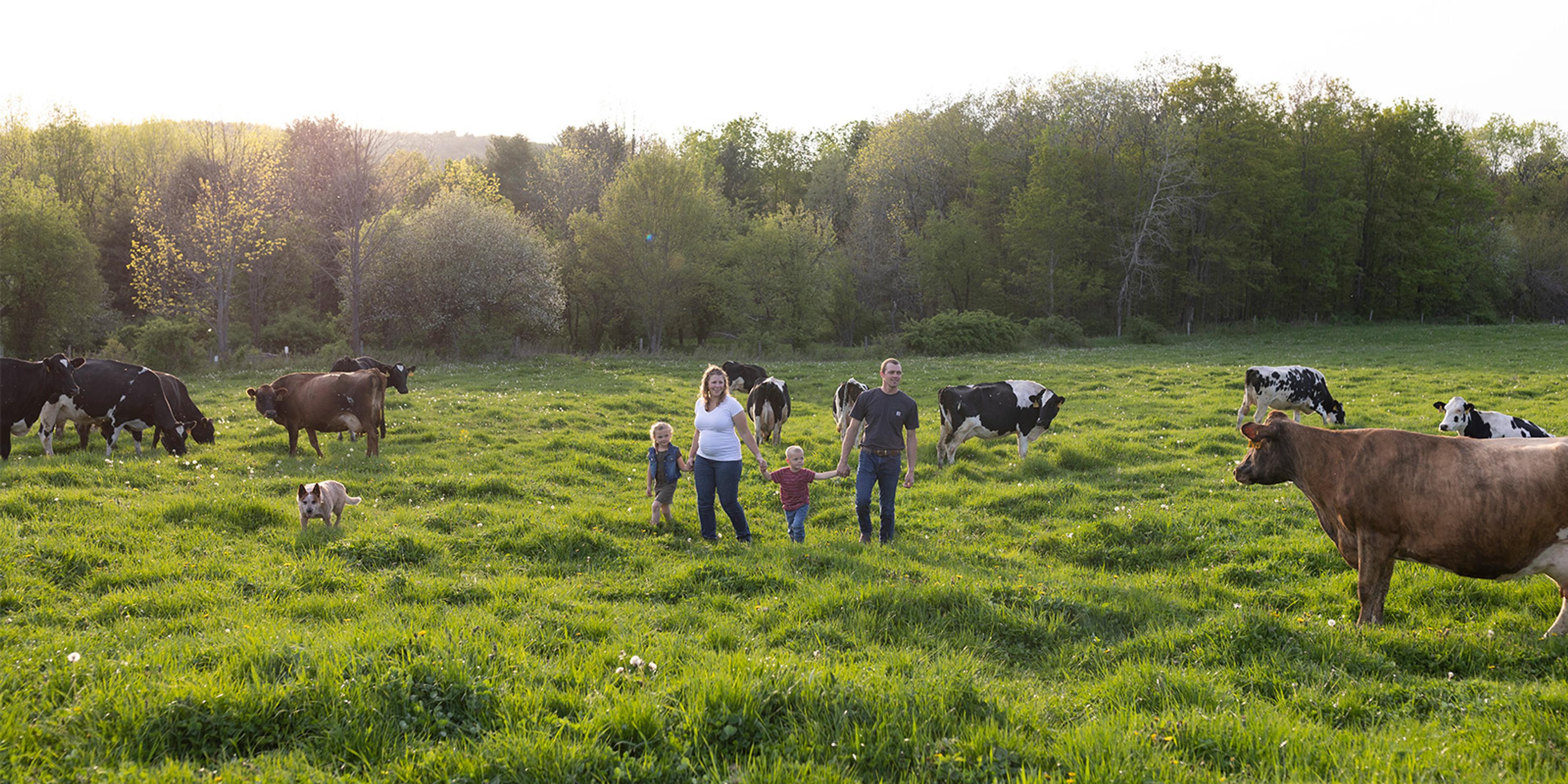
Curious cows watch the Poole family on a spring day.
The Spirit of Farming and Family
With all the hard work and financial challenges, why is Madeline so compelled by farming?
“For me, it’s a passion,” she said. “I was taught at a young age to appreciate nature and the gifts we have been given. We are here to take care of them — the cows, family and nature.”
It’s the wholesomeness and connection with nature and the cows that make it satisfying, she added. There are countless special moments, like watching the cows come in from pasture, their daughter playing in fields of dandelions and hearing the children giggle while they name the calves.
Help Comes Just in Time
Farming is an expensive business and takes a lot of investment — financially, physically and emotionally. The Poole family has made numerous upgrades to their family farm over the past few years, but there was one major, important investment they were having a tough time figuring out how to afford.
The farm was redesigned in the 1960s and ’70s to accommodate milking 200 to 300 cows. This included a 1970s-era 4,000-gallon bulk milk tank, which holds the milk and keeps it cool.
The tank was on its last legs. And without a tank, there is no way to keep milk safe. It likely had to be replaced within five years, and what may seem like a small piece of all the moving cogs that make farming possible would cost upwards of $100,000.
Madeline put a lot of energy into completing a U.S. Department of Agriculture grant application and was beyond surprised that she acquired $50,000 from the Dairy Business Innovation Initiatives program. She remembers the time and date she got the email confirming the grant — 8:30 p.m. on Nov. 30.
“It’s honestly amazing, and I cried. I cried like a baby,” she said.
Why Is a Tank So Important?
The bulk tank is for milk storage and keeps the milk a high-quality product for people to enjoy, Madeline said.
With help from the grant, they are downsizing … in a good way. They will save money and raise efficiency by installing a 3,000-gallon milk tank and cooling system. They milk about 140 cows and don’t need a tank as large as the existing one. Though it’s smaller, the system still costs about $100,000.
“We could not afford a new tank. In the end, we’d have to find a used one or use a portable one. It would have come down to major crunch time and a huge loan from the bank,” Madeline said.
Without getting too technical: Milk comes out of cows at 101 F and needs to be brought to 38 F for safety reasons. The tank and cooling system are absolutely necessary. But getting a new tank also means they need to lay new concrete to set it on.
The grant was a blessing but did not cover the entire cost and they had to take out a loan.
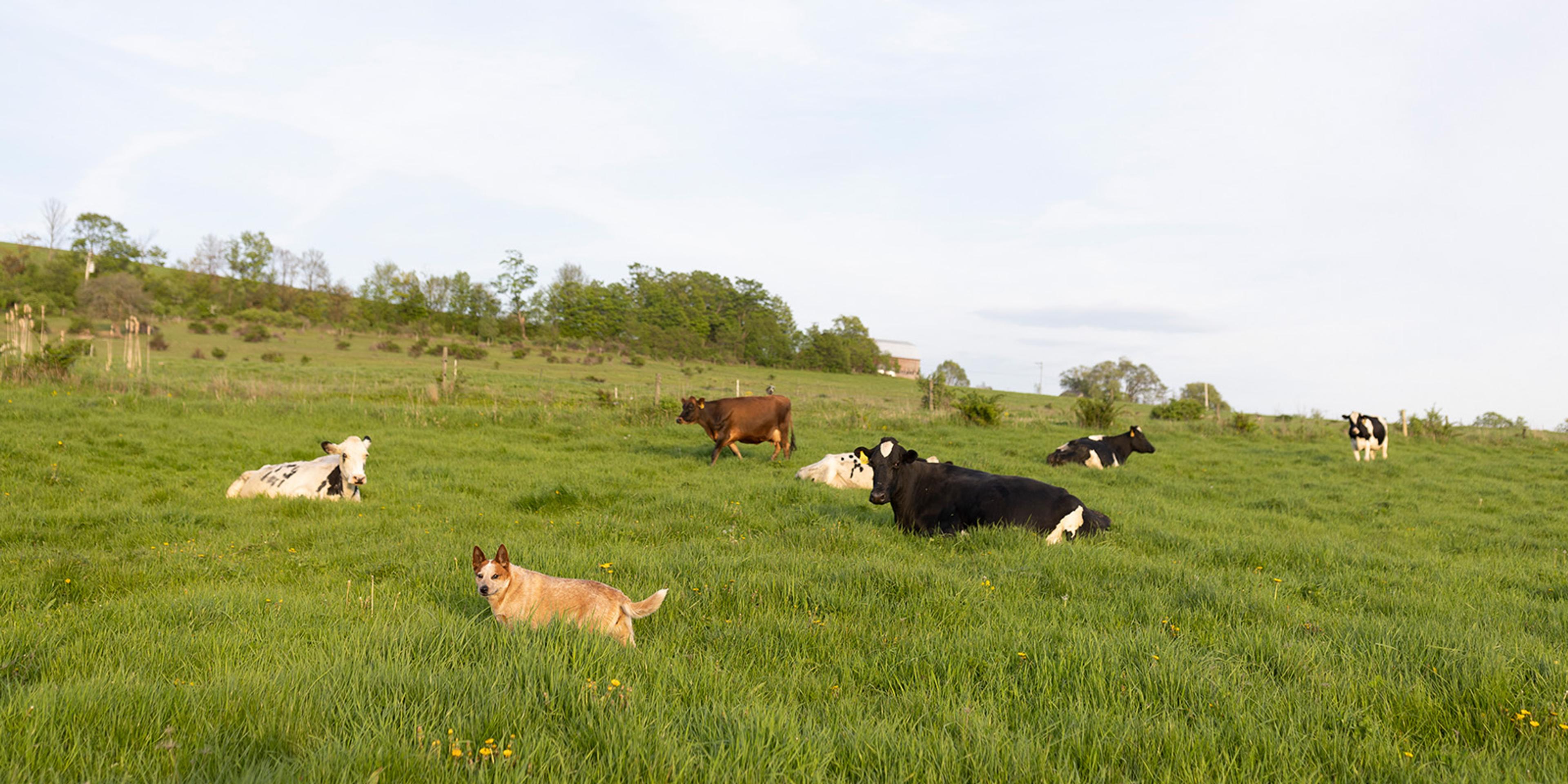
Animals enjoy a lazy day on pasture at the Poole family farm in New York.
Organic Valley Supports Innovation Initiatives
Dairy Business Innovation Initiatives grant money is designated in the farm bill and addresses needs by region. The money can go to farmers or businesses and supports the diversification, marketing and processing of dairy products and regional milk production. It has a major impact on families like the Pooles.
Changes to the 2018 farm bill are underway, as it expires this year. Organic Valley urges reauthorization and expansion of the Dairy Business Innovation Initiatives, including appropriations of $36 million each fiscal year toward the program.
The valuable funding supports farmers with business plan development, marketing and branding as well as increases access to innovative production and processing techniques to support the development of value-added products.
“DBI money is good for farms, for businesses and people,” said Adam Warthesen, Organic Valley senior director of government and industry affairs.
Quality Organic Food
The Pooles look forward to the impact a new tank will have and plan to continue upgrading their farm. They are just one of more than 1,600 Organic Valley family farms that take pride in providing high-quality organic food. These farms do not use toxic pesticides and readily go above and beyond U.S. Department of Agriculture organic animal care standards. We thank them for their dedication.
Organic Valley exists to save and safeguard small organic family farms and we also thank you, the consumer, for supporting that mission.
An antique typewriter fanatic and chicken mom who treasures time outdoors admiring all that nature has to offer, Jennifer McBride is Rootstock’s editor. McBride spent 15-plus years as a journalist and newspaper editor before finding her niche with the nation’s leading organic dairy cooperative. Contact her at Rootstock@organicvalley.com.
Related Articles
- Tags:
- farm life,
- sustainable business,
- farmer voices,
- children














